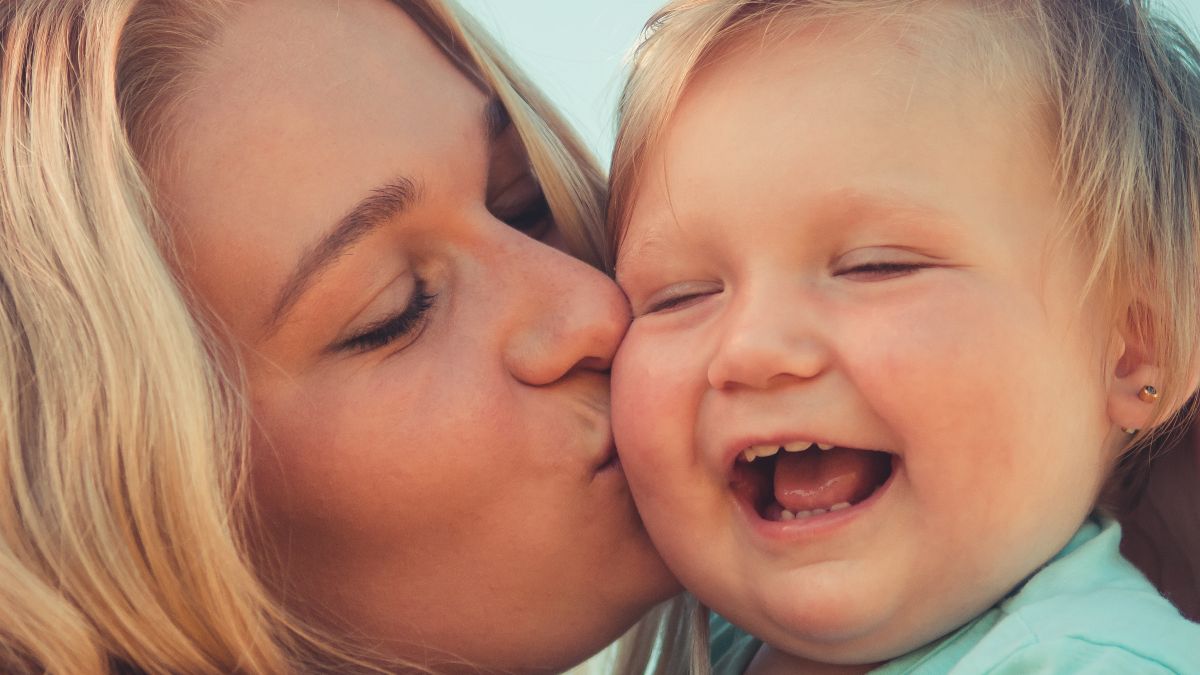
Research Reveals 5 Rules Of 'Ideal Motherhood' And Why You Should Break Them
Perfection and parenthood are two words thats shouldn't be used in the same sentence. Here's why it's okay to be a 'good enough mother.'

By Jourdan Travers, LCSW | November 14, 2023
A 2022 study published in the Journal of Family Theory and Review examined societal norms and expectations of motherhood over the past two decades. The study unveiled five distinct archetypes of "ideal mothers," each laden with its own set of challenges and contradictory, gendered implications.
Here are the five types of good mothers, according to the study.
1. The Present Mother
The "present mother" norm emphasizes being a highly attentive, present mother who possesses an encyclopedic understanding of their child's every whim, need and desire. While mindful parenting is important, the present mother ideal often manifests in making extraordinary sacrifices, dedicating one's body, time and undivided attention to a child, regardless of any personal suffering, health or financial limitations.
This norm is considered the gold standard for providing children with the best possible care, reinforcing the pervasive belief that mothers are the ultimate authority on childcare. Concepts like "mother knows best" imply that motherhood is an innate talent and perpetuate impossible gender norms.
This ideal implies that mothers should instinctively know how to be perfect parents. It creates an environment where any questions, fears or concerns about motherhood are viewed as failures and can lead to a lack of support from their partners, family or communities, exacerbating their challenges. As a result, mothers are often left feeling isolated, frustrated, fearful and burnt out.
2. The Future-Oriented Mother
The "future-oriented mother" archetype places immense pressure on being the primary architect of a child's future, both in terms of physical and cognitive development. Mothers are expected to know how to curate a nurturing environment for a child's physical development from the get-go.
This expectation extends to matters like breastfeeding, for instance, which is revered as the pinnacle of natural and healthy nourishment, while formula milk is often frowned upon as artificial.
A 2022 study found that mothers often have recurring feelings of guilt due to rigid societal expectations around feeding their children. Mothers of older children are expected to continue this vigilant stewardship as well as find ethically sourced food, often requiring them to allocate significant financial and time resources.
Mothers are also charged with creating an ideal learning environment and encouraged to commence early mental stimulation and curate only the best education for their children, with little to no regard for diverse backgrounds and economic circumstances, fostering a culture of perfectionism.
It is essential to recognize that deviating from these norms does not equate to failing as a parent. A more inclusive perspective allows mothers to make choices that best suit their unique circumstances and their children's well-being.
3. The Working Mother
The working mother norm reflects the expectation to seamlessly merge one's professional responsibilities with their maternal role. This implies that a mother's employment should not diminish the time and energy available for familial responsibilities.
On one hand, popular media and workplaces tend to portray working mothers negatively or encourage them to focus more on caregiving at home. On the other hand, co-workers and employers may view mothers as less committed and less career-oriented employees once they become mothers.
The outcome is a lose-lose scenario for mothers who continue to work and find themselves in a liminal space, perceived neither as ideal employees nor fully committed caregivers.
4. The Public Mother
This norm dictates that mothers exert an exceptionally high degree of control over their bodies, maternal performance and children in their personal lives and especially in the public eye, where mothers anticipate being observed, judged and even policed by others. For instance, breastfeeding in public is often shunned.
As a result of societal expectations, pregnant mothers may struggle to control their body size, cravings, emotions or even attempt to micromanage the birthing process, striving to display strength and the ability to "regain control" over their bodies postpartum, based on internalized beliefs about what a "good mother" should do, feel and look like.
Research shows some mothers seek to control their children's appearance, behavior, success and performance, as these outcomes serve as a testament to their own success as mothers. These expectations can be stifling and counterproductive, leading mothers to constantly question their own worth as mothers and possibly impair their relationships with their children.
5. The Happy Mother
The "happy mother" norm preaches the unrealistic expectation of perpetual happiness and satisfaction in one's maternal role. Society implicitly dictates that women should naturally desire motherhood, even before they conceive, potentially leaving childless individuals grappling with mixed emotions, ranging from longing to despair or even confusion if motherhood is not what they want.
Mothers are also expected to immediately love and joyfully bond with their newborn or to delight in breastfeeding, even when this act may evoke conflicting feelings of pain, discomfort and exhaustion.
Additionally, mothers expressing discontent or frustration often face judgment. Their grievances are routinely dismissed, reinforcing the idea that motherhood should exclusively evoke positive feelings, despite it being a life-altering and deeply challenging experience, bringing with it the possibility of developing serious physical and mental health conditions including postpartum depression.
Conclusion
The concept of being a "good enough mother" emphasizes that meeting a child's needs doesn't require perfection. Some level of inconsistency and occasional lapses in caregiving are not harmful and can help children develop independence and resilience, highlighting the need for a more realistic and compassionate approach to motherhood.
With diverse experiences of motherhood, a one-size-fits-all approach to parenting must be challenged. Being a parent is a learned skill and it is not necessary or even possible to do it perfectly. It is essential to take time for oneself and lean on a support system, while remembering that the "perfect mother" is nothing but a myth.
